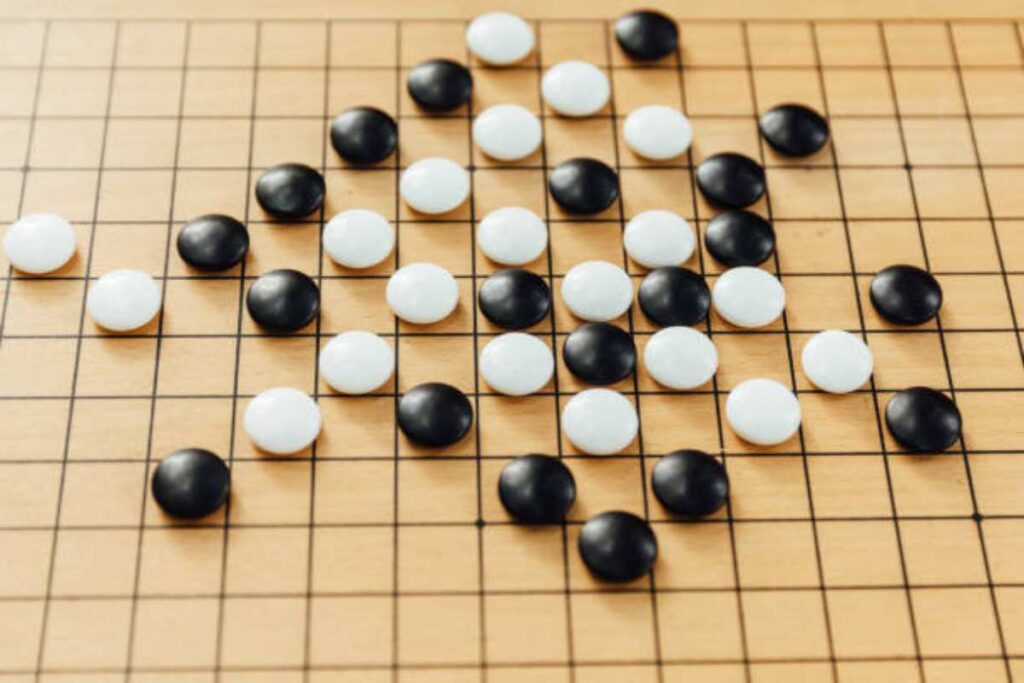Introduction
AlphaGo is a computer program shaped by DeepMind, a subordinate of Script Inc. (Google’s parental company), designed to play the board willing Go. It was the first AI program to beat a professional player (Fan Hui) in October 2015 on a standard board without handicaps.
Development of AlphaGo:
The development of AlphaGo includes several milestones and innovations that demonstrate the potential of AI and ML to solve complex problems.
- AlphaGo was developed by DeepMind in Greater Greater London.
- The program was trained using deep neuronic networks, a form of artificial intelligence that acquires and makes decisions similar to the human thought process.
- AlphaGo’s initial training involves supervised learning, which consists of studying a large dataset of Go games played by experienced players.
- DeepMind later developed AlphaGo Zero, an improved version that learned solely through playing on its own, without using data from human experts.
- DeepMind continued its research into artificial intelligence by applying methods similar to those of other games, including chess and shogi, with the growth of AlphaZero.
What are the Components of AlphaGo?
A board game depends on several key components and algorithms. Here are the main elements of a board game:
Monte Carlo Tree Search (MCTS):
AlphaGo uses MCTS, a probabilistic algorithm that models moves and evaluates potential outcomes by moving through a tree structure.
Neural Systems:
Deep neural networks play a key part in AlphaGo’s decision-making process. Two main types of neural networks are used: policy and value.
Supervised Learning:
AlphaGo uses a supervised learning method to learn primarily from games played by human experts. However, the program analyzes a large dataset of expert games to predict the best ones in dissimilar locations.
Simulation and Assessment:
The MCTS algorithm simulates multiple games by creating random moves and using a value network to evaluate the resulting positions.
AlphaGo Training:
AlphaGo’s training is a multi-step process that combines supervised learning, reinforcement learning, and extensive self-play.
Supervised Learning:
- Data collection: AlphaGo was trained by collecting a large dataset of experienced Go games.
- Neural Network Training: A neural network, specifically a policy network, was skilled using the expert dataset. This policy network is excellent at predicting the actions of human experts in various boardroom situations.
Reinforcement Learning:
- Self-play: AlphaGo plays by itself, without relying on external human input.
- Policy and value networks: The policy network improved through policy promotion, optimizing moves that led to success in its game. At the same time, the value network learned to evaluate board positions and predict the probabilities of victory.
Historic Matches of AlphaGo:
In March 2016, AlphaGo made history by defeating Lee Sedol, one of the world’s best Go players, in a five-game match. The program, developed by DeepMind, also demonstrated the power of artificial intelligence in mastering this ancient and complex game.
Moreover, AlphaGo’s victory in the first Chinese game, known for its colossal decision space, strategic depth, and intuition-based play, marked a significant milestone in machine learning.
As a result, the games have captured the world’s attention by demonstrating the potential of advanced algorithms, neural networks, and reinforcement learning to surpass human expertise in areas that require intuition and deep strategic thinking.
Achievements of AlphaGo:
Below are the achievements of this board willing:
- In March 2016, AlphaGo defeated Lee Sedol, the world champion in the game of Go, in a five-game match.
- AlphaGo has demonstrated an extraordinary ability to play the ancient game of Go at superhuman levels, demonstrating advanced strategic thinking and intuitive decision-making.
- AlphaGo’s achievements have profoundly impacted the field of artificial intelligence, spurring increased interest and investment in AI research worldwide.
- Building on the success of AlphaGo, DeepMind industrialized AlphaZero, a system that achieved exceptional performance in chess and shogi, demonstrating the adaptability and simplification of basic AI methods.
Conclusion:
In conclusion, AlphaGo’s victory over the Go champions was a turning point for artificial intelligence. Developed by DeepMind, AlphaGo demonstrates unprecedented capabilities of neural networks, reinforcement learning, and innovative algorithms.
Consequently, its historic victories, especially against Lee Sedol, highlighted the potential of AI to surpass human intuition in making strategic decisions. AlphaGo’s legacy extends beyond Go, fueling breakthroughs in machine learning and inspiring research in various fields.
Moreover, this groundbreaking achievement demonstrated the adaptability and power of AI. It contributed to the broader study of free learning, leaving an indelible mark on artificial intelligence research and application development.

